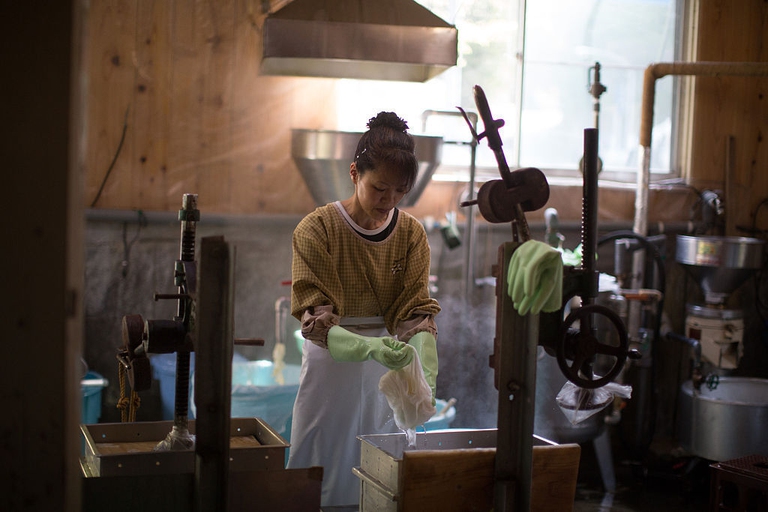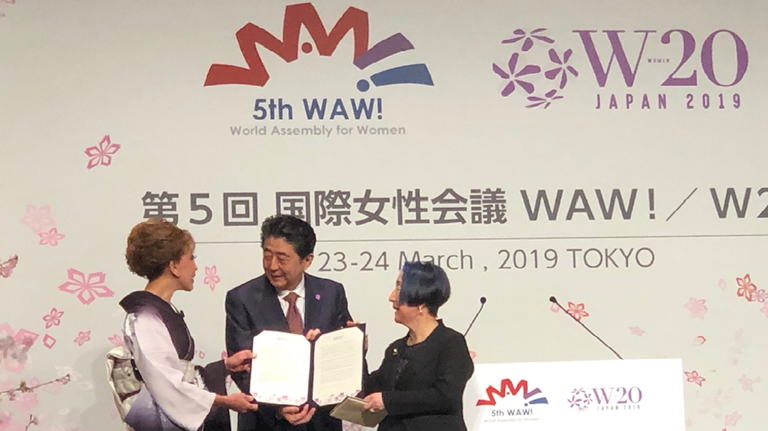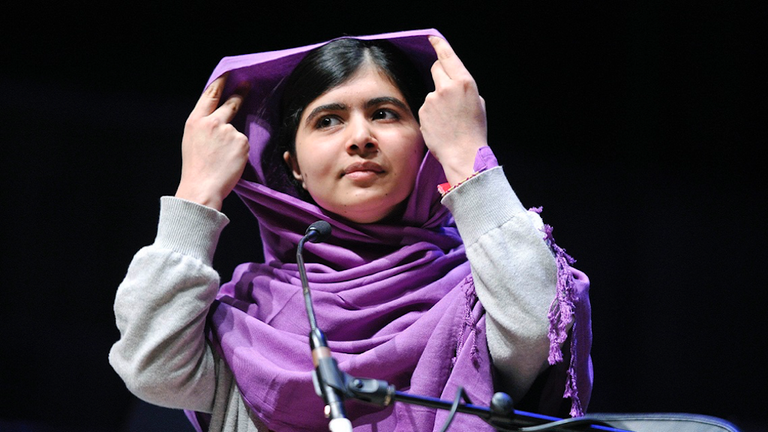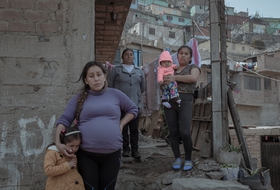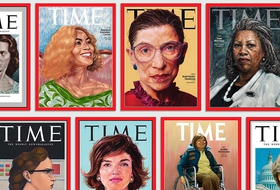
One in three women have suffered physical or sexual violence. With contributions from Europe, Africa, Asia and Latin America, we look at how this shadow pandemic affects every corner of the world.
At the dawn of a new era, women in Japan still face old challenges: they’re paid less than men and struggle to scale the professional ladder. How can the impasse be broken?
Despite reforms aimed at improving gender equality, engrained social and cultural norms continue to fuel discrimination against women all over the world. In Japan, social and cultural barriers are particularly difficult to overcome and women are struggling to break the glass ceiling, especially in their work life. This is why it’s important to highlight new models and stories of women who are succeeding in overcoming stereotypes. In addition, the commitment of institutions and private companies is also essential in closing the gender gap, a key prerequisite for prosperity and development.
In terms of wage differences between men and women, Japan is lagging behind. In the last few years, Prime Minister Abe has promoted a number of initiatives to foster an environment in which women can shine, trying to increase female participation in the labour force and leadership positions. However, despite Abe’s “womenomics” programme, as it’s known, the plan is struggling to make a dent.
Although the gender wage gap in the country has decreased over the last 15 years, it remains large (24.5 per cent), and Japan is third to last in the ranking compiled by the Organisation for Economic Co-operation and Development (OECD), which brings together 36 member states, ahead only of Estonia (28.3 per cent) and Korea (34.6). Moreover, in the World Economic Forum’s annual Global Gender Gap Report, in 2018 Japan was ranked 110th out of 149 countries in terms of salary equity, behind Guatemala, India and Mauritius, and in 117th position for economic participation and opportunity.
One of the reasons underlying this discrimination is the lack of women in leadership positions and in politics. In fact, Japan has the most male-dominated political class in the OECD with only 9.3 per cent of female representatives in Parliament (against an average of 28.8 per cent). Moreover, although women’s employment rate is around two thirds, less than 1 per cent of those working are in management positions and they hold only 12 per cent of leadership positions.
The Japanese example shows how the gender pay gap is one of the areas where discrimination is evident even in the most developed counties. According to recent data, the average wage gap in OECD countries is around 13.8 per cent. While this marks a little improvement compared to previous years, positive change has occurred at a slow pace. Clearly, this process needs to be accelerated.
In fact, gender equality isn’t only a social goal, it’s an economic one too – the two aspects go hand in hand. The 2019 Global Report compiled by the OECD’s Social Institution and Gender Index estimates that 6 trillion dollars in income is lost worldwide due to gender-based discrimination, equal to 7.5 per cent of global GDP. Moreover, in many countries the number of women in employment is still very low and, even when they do participate in work life, there’s still a gap in terms of their representation in management positions and what they earn compared to their male counterparts.
With the purpose of creating an antidote to this grave scenario, Tokyo-based business woman Melanie Brock launched Celebrating women in Japan in 2018, with the aim of sharing the experiences of women from diverse backgrounds and spreading the word about their incredible contributions. In fact, in communities where there are few female role models, this makes it harder for younger generations to break the glass ceiling. These stories show that, though challenging, it’s not impossible.
For example, Kaoru Joho is the 25-year-old owner and founder of Table Cross, an app that directs a percentage of the revenue restaurants earn through bookings made via the platform to a fund that helps children living in poverty in developing countries. Joho set the company up while studying at Rikkyo University, in the Japanese capital, based on a model of employing stay-at-home mothers and other people who benefit from flexibility in job hours. Learning from other companies all around the world, Table Cross offers a completely new style of employment for Japan, a country where people are used to particularly long working days.
Another extraordinary example of a woman who has broken through the barriers imposed by ascribed social roles is Chiaki Mukai. After having worked as a cardiovascular surgeon, in 1994 at the age of 32 she became the first Japanese woman to travel into space, spending more than 500 hours in orbit on two separate missions. She has been Vice-President of the Tokyo University of Science since 2015 and is the head of the Research Center for Space Colony, which works on developing technologies to allow human beings to survive in space. Her example is extraordinary especially if we consider women’s participation and performance in education in the country. Even if Japan’s education system is recognised as one of best worldwide, less than a third of new entrants to doctoral programmes are women, the lowest share across the OECD countries.
Female leaders from all over the world are gathering in Tokyo for two concurrent events on women’s empowerment: the World Assembly for Women (#WAW_Japan) & #W20, an engagement group from #G20. Learn more with #WeAreTomodachi: https://t.co/9FTf0z4PTf pic.twitter.com/DWyJK6wR0I
— japan (@japan) March 21, 2019
To create a more inclusive environment, the commitment of politics and the private sector to promote diversity is needed. This is what emerged during the the joint World Assembly for Women and Women 20 (W20) summit held in Tokyo on 23 and 24 March, during which representatives of delegations from all over the world submitted a communiqué to Japanese Prime Minister Shinzo Abe endorsing previous G20 declarations and making new suggestions on how to improve gender equality and empower women based on four pillars: labour equity, financial inclusion, digital rights and governance.
In addition, corporate executives took the floor to describe their commitment to these issues. Stacey Kennedy, president of the South and South East Asia Region at tobacco company Philip Morris International, spoke about being part of a commission to improve gender balance in the workplace, especially in terms of obtaining equal salaries. Philip Morris Japan was the first company outside of Switzerland to obtain Equal-Salary Certification (whereby companies verify and communicate that they pay female and male employees fairly) in November 2016.
If you want to create a world where all women and girls can shine, where women are driving innovation, or succeed in government and business, our leaders must invest in girls’ education.Malala Yousafzai at the W20 Summit in Tokyo
During the opening session, keynote speaker and Nobel Peace Prize winner Malala Yousafzai celebrated astronaut Mukai as an extraordinary example of what women can do thanks to access to the best education. Yousafzai, an international advocate for female schooling, urged world leaders to promote the empowerment of women by educating girls and offering them financial support. Because including women is a great opportunity for economic and social growth that Japan, and all other countries, simply can’t miss out on.
Siamo anche su WhatsApp. Segui il canale ufficiale LifeGate per restare aggiornata, aggiornato sulle ultime notizie e sulle nostre attività.
![]()
Quest'opera è distribuita con Licenza Creative Commons Attribuzione - Non commerciale - Non opere derivate 4.0 Internazionale.
One in three women have suffered physical or sexual violence. With contributions from Europe, Africa, Asia and Latin America, we look at how this shadow pandemic affects every corner of the world.
The Istanbul Convention against gender-based and domestic violence marks its tenth anniversary. We look at what it is, who its signatories are, and what the future might hold.
European Commission President Ursula von der Leyen reminded us of the gravity of violence against women around the world, and of the Istanbul Convention’s utmost importance.
President Erdoğan has pulled Turkey out of the Istanbul Convention, key in the fight against gender violence, claiming that it favours the LGBT community rather than family values.
Violence against women in Peru has increased as a result of Covid-19 lockdowns. 14,912 people were reported missing from January to November 2020, more than half of them minors and 64 per cent women. People have been confined to their homes for months, many forced to endure poor physical, economic and social conditions. A situation that
Joys Estefani Qqueccaño Huamani, 24, disappeared from her rural community in Peru on 9 October. Her family began looking for her independently of the authorities and despite the resistance of relatives of Joys Estefani’s ex-partner Arturo Ccana Condori, 32, charged with committing violence against her on 28 September, eleven days before Joys Estefani disappeared. Photos
Costa Rica celebrated its first same-sex marriage when two women, Alexandra Quiros and Dunia Araya, celebrated their wedding: an “extraordinary moment”.
The pandemic and its restrictions are affecting everyone, without exceptions. However factors like housing, income inequalities, gender, access to technology and working conditions are influencing how people experience the health crisis.
Time magazine’s 100 Women of the Year project sheds light on influential women’s stories, from Amelia Earhart to Greta Thunberg. A selection of some of the greats for International Women’s Day.
